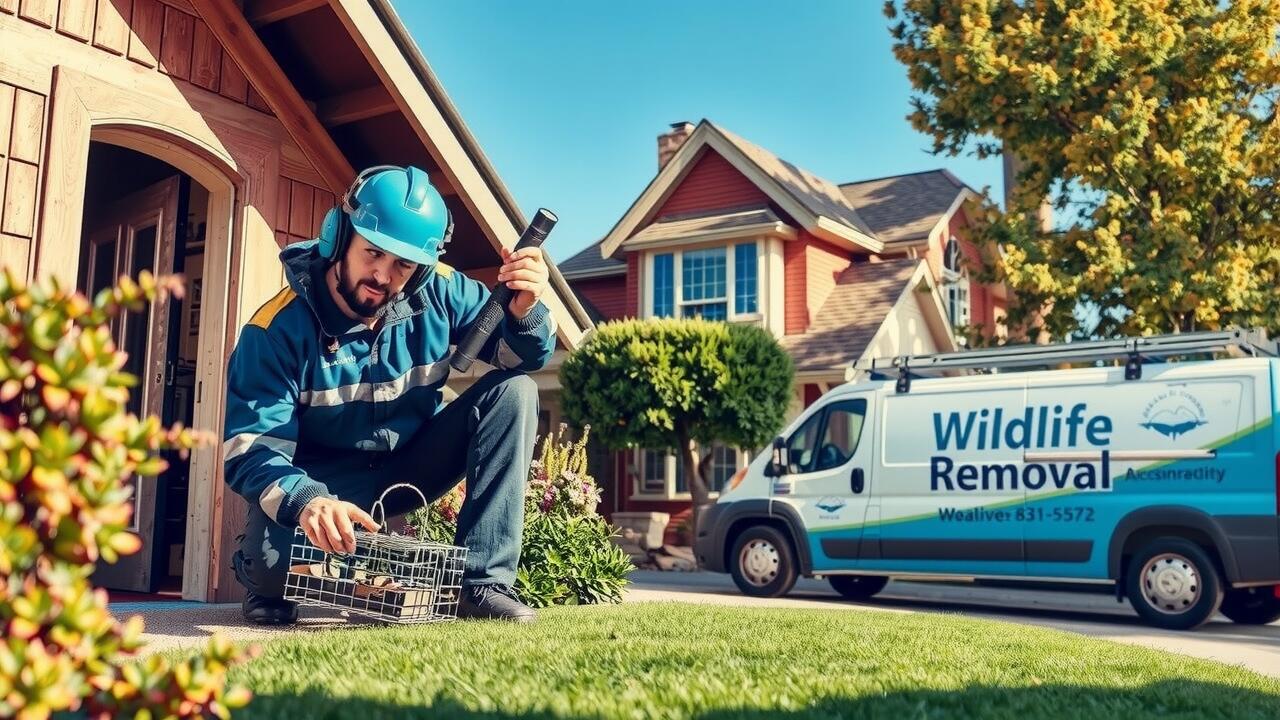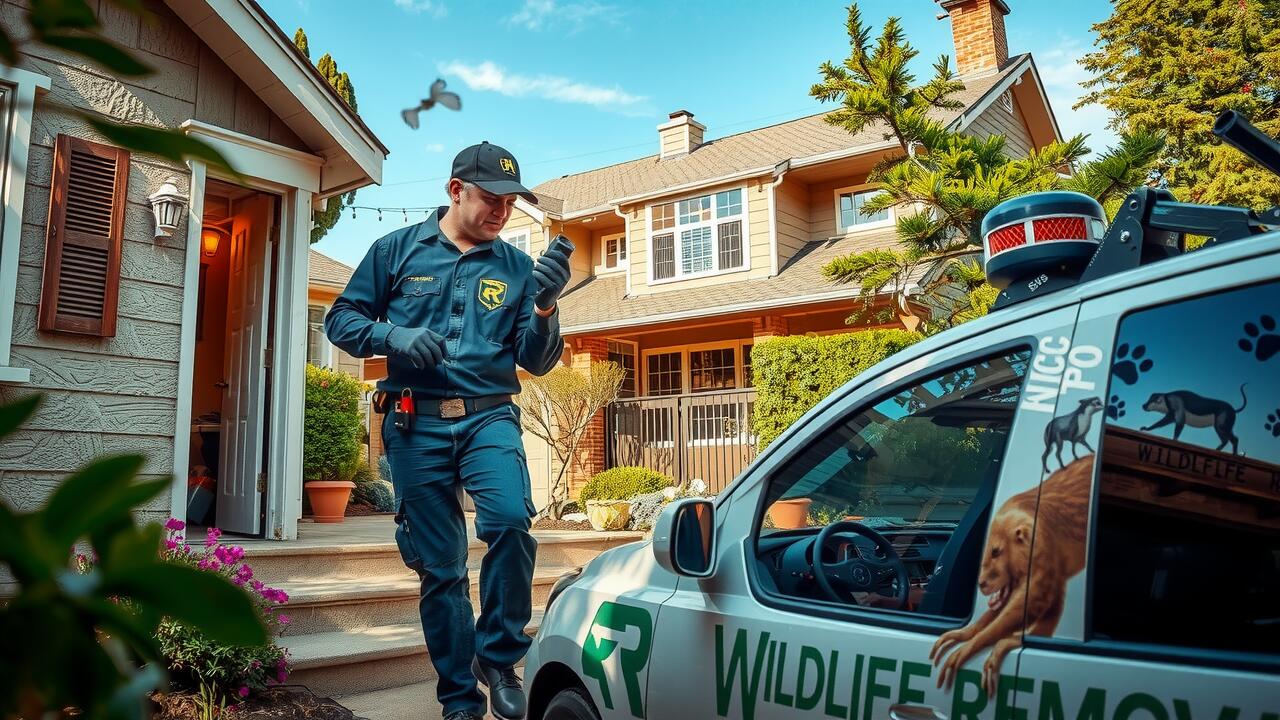
When to Call Professionals
Determining when to call professionals for wildlife removal can depend on several factors. If animals are nesting or making loud noises within your walls or attic, it often signifies a more serious intrusion. Additionally, if you or your family have experienced a direct encounter with the wildlife, such as finding them in your living spaces, it becomes essential to seek expert help. Ignoring these signs may lead to property damage or potential health risks from parasites or disease transmission.
For residents in Katy, Texas, opting for a reputable service like Residential Wildlife Removal can provide peace of mind. These professionals not only specialize in effective removal strategies but also ensure the safety of both the animals and your household. They are equipped to handle various species commonly found in residential areas and can assess your situation comprehensively while offering tailored solutions for prevention in the future.
Signs You Need Expert Help
Signs indicating the need for expert help include persistent noises in walls or attics, unusual smells, or evidence of droppings around your home. If you notice these signs, it’s crucial to act promptly. Wildlife can cause significant damage to your property and pose health risks through potential diseases. Ignoring these indications may lead to more severe infestations that are harder to manage.
In situations where animals are trapped within your living spaces, or if you’ve attempted DIY removal without success, professional assistance becomes essential. Specialists in Residential Wildlife Removal in Katy, Texas, possess the necessary expertise and tools to safely manage and remove wildlife from your home. Their knowledge can prevent further entry and ensure that your living environment remains safe and healthy.
After Removal Care
After wildlife has been removed from your home, it’s essential to clean and sanitize the affected areas to prevent any potential health risks. Animal waste, urine, and nesting materials can harbor harmful bacteria and parasites. Thoroughly scrub all surfaces using a mixture of soap and water, followed by a disinfectant. This process ensures that any trace of the animals is eliminated.
In addition to cleaning, consider making modifications to your home’s environment to deter future wildlife invasions. Securing entry points and removing food sources can significantly lower the chance of animals returning. Consulting with experts in Residential Wildlife Removal in Katy, Texas can provide valuable insights into effective long-term solutions for keeping your living space wildlife-free.
Cleaning and Sanitizing Affected Areas
Once the wildlife has been safely removed from your home, it is crucial to clean and sanitize any areas they may have invaded. Droppings, urine, and nesting materials can pose health risks and attract other pests. Using appropriate cleaning agents can eliminate lingering odors and pathogens. Focus on all surfaces, including walls, attics, basements, and any affected furniture to ensure a thorough cleanup.
For homeowners in Katy, Texas, consider hiring professionals who specialize in Residential Wildlife Removal in Katy, Texas. These experts not only assist with the removal process but can also help with the necessary sanitation procedures. Proper cleaning techniques will minimize health hazards and reduce the likelihood of future infestations, creating a safer living environment for you and your family.
Long-term Solutions
Implementing long-term solutions is essential for preventing wildlife from entering your home in the future. One effective strategy involves modifying your landscaping and surrounding habitats. Keeping vegetation well-trimmed and away from structures reduces hiding spots for animals. Installing barriers like fences or using certain plants can deter specific wildlife. These measures not only make your property less appealing to potential intruders but also contribute to a healthier outdoor environment.
For residents seeking assistance, Residential Wildlife Removal in Katy, Texas, offers expert guidance on addressing wildlife issues. Professionals can provide tailored advice based on local wildlife behavior and habitat preferences. Homeowners should also consider regular inspections of their property. Proactive maintenance, such as sealing gaps and keeping trash secure, helps maintain a barrier between your home and wildlife. Taking these steps ensures a safer and more comfortable living space for everyone.
Landscaping and Habitat Modification
Creating a less inviting environment for wildlife around your home can significantly reduce the chances of unwanted animal visits. Consider trimming back overgrown shrubs and trees that serve as natural shelters or pathways. Keep firewood stacked away from the house and raise it off the ground. Additionally, filling in any holes or gaps in fences and around the foundation prevents small animals from entering your yard.
Implementing landscaping strategies can further deter wildlife. Using native plants that are unappealing to common local pests can help maintain a more controlled ecosystem. Residential Wildlife Removal in Katy, Texas, often suggests installing fencing that is buried a few inches underground to prevent burrowing animals from accessing your property easily. By taking these steps, homeowners can create a more wildlife-resistant environment and enjoy their outdoor spaces with peace of mind.
FAQS
What should I do if I hear noises in my attic?
Noises in your attic could indicate the presence of wildlife. It’s advisable to inspect for signs of entry points and droppings, and consider calling a professional if you suspect an animal is inside.
How can I tell if I have a wildlife infestation?
Signs of a wildlife infestation include droppings, nesting materials, scratching sounds, or unusual odors. If you notice these indicators, it’s best to seek expert help.
What methods can I use to prevent wildlife from entering my home?
To prevent wildlife from entering, seal all entry points, install screens on vents, keep food stored securely, and maintain your yard to minimize attractants.
Is it safe to handle wildlife myself?
It is generally not safe to handle wildlife on your own, as many animals can carry diseases or may become aggressive when threatened. It is recommended to contact professionals for safe removal.
What should I do after the wildlife has been removed?
After removal, clean and sanitize the affected areas to eliminate any health risks from droppings or urine. Consider making modifications to your property to deter future infestations.
